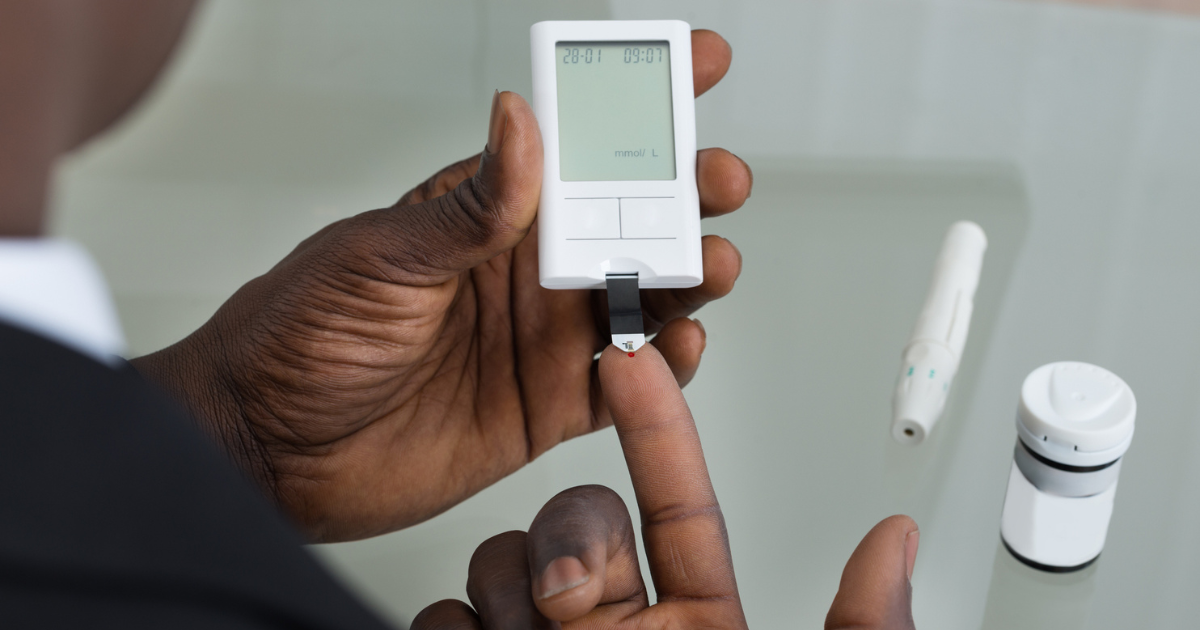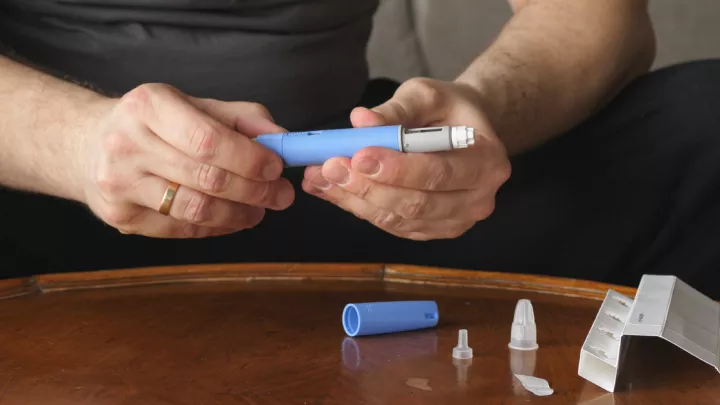Dealing with diabetes and prediabetes - how to prevent or manage the disease

Let’s start with the difference between Type 1 and Type 2 diabetes.
- Type 1 diabetes is caused by autoimmune destruction of the insulin-producing cells in the pancreas leading to a lack of insulin.
- Type 2 diabetes (which is the focus of this article) is caused by ineffective insulin or the lack of insulin. This leads to high blood sugar levels.
What causes Type 2 diabetes?
Glucose is one of the primary sources of fuel for our cells. You need insulin to move glucose out of the bloodstream and into the cells where it can be used as fuel. In Type 2 diabetes, this process isn't working properly in one of two ways:
- The cell may be resistant to insulin, so it takes more insulin to move glucose into the cells.
- Or there may not be enough insulin in the bloodstream to move glucose into the cells.
When cells are resistant to insulin, the pancreas (the organ that produces insulin) produces more and more to overcome that resistance. Over time, the pancreas begins to tire out. It’s no longer able to produce enough insulin to overcome the resistance. This leads to higher blood sugar levels, prediabetes and diabetes.
Insulin resistance can also increase a person’s risk of:
- Cardiovascular disease
- High blood pressure
- Abnormal cholesterol levels
- Abnormal liver function
If insulin resistance is left untreated, you may develop prediabetes. “One in three adults in the United States (about 96 million) has prediabetes. Approximately 80% are unaware of their diagnosis,” explains endocrinologist Sydney Blount, MD. “That’s because prediabetes often has no clear symptoms. Most don’t know they have it until they’re screened by a doctor.”
Risk factors for diabetes and prediabetes include:
- Being overweight or diagnosed with obesity.
- Having a first-degree relative (mother, father, brother or sister) with Type 2 diabetes.
- Being over the age of 45.
- Being diagnosed with gestational diabetes during pregnancy.
- Belonging to certain racial and ethnic groups.
- Having polycystic ovarian syndrome.
- Sedentary lifestyle (being active less than three times a week).
- Having a diet high in sugar-sweetened beverages and foods.
“Prediabetes increases your risk for cardiovascular disease, heart attack and stroke,” warns Dr. Blount. “Individuals with prediabetes should be screened for other cardiovascular risk factors like high blood pressure or high cholesterol. Those who smoke should be encouraged to quit.”
Individuals with prediabetes are at high risk of developing Type 2 diabetes. Approximately 10% of adults with prediabetes will develop diabetes each year. Since prediabetes and early diabetes often have no symptoms, screening is extremely important. The American Diabetes Association recommends screening for diabetes every three years, starting at age 35. If prediabetes is diagnosed, you should be screened annually for Type 2 diabetes.
Diabetes prevention
Lifestyle changes are very effective in stopping prediabetes from progressing into Type 2 diabetes. “The best way to prevent prediabetes from becoming Type 2 diabetes is through exercise, diet and weight loss,” says Dr. Blount. “Aim for 150 minutes a week of moderate exercise. Brisk walking for 30 minutes five days a week can get you to that goal.”
For every 2.2 pounds of weight loss, you reduce your risk of developing diabetes by about 16%. A good goal is to lose about 7% of your body weight. If you weigh 200 pounds, you will need to lose about 14 pounds.
There are no FDA-approved medications to treat prediabetes and prevent it from progressing to Type 2 diabetes. However, doctors often prescribe metformin in this case. Metformin tends to work best in:
- Patients diagnosed with obesity.
- Those with a prior diagnosis of gestational diabetes.
- Patients under the age of 60.
“There’s no one-size-fits-all diet for diabetes,” says Dr. Blount. “I generally recommend a diet low in processed foods and sugars and high in lean protein and nonstarchy vegetables. Also, try not to drink your calories. Instead, drink water or zero-calorie drinks.”
Some studies have found that those on vegetarian and plant-based diets have a lower risk of developing Type 2 diabetes. “I strongly encourage patients to meet with a registered dietitian to create a diet plan that works for them,” adds Dr. Blount.
Can Type 2 diabetes be cured?
Dr. Blount explained that while Type 2 diabetes isn’t curable, remission is possible. “Once you've been diagnosed with diabetes, there's always a chance of it returning,” she says.
Currently, diabetes remission is when you have a hemoglobin A1C test result that's less than 6.5%. Your results must be in that range for at least three months after stopping all glucose-lowering medications.
Again, lifestyle changes are the best way to put diabetes into remission. These include changes in exercise and diet, resulting in weight loss. Some patients may choose to have metabolic or bariatric surgery and sometimes a short course of medication.
Once diabetes is in remission, your doctor should continue monitoring for progression or recurrence of diabetes. You should also get annual screenings for complications of diabetes, including:
- Retinal screening
- Kidney screening
- Monitoring blood pressure
- Checking cholesterol levels
Treatment for diabetes
“First-line treatment for Type 2 diabetes is lifestyle intervention,” says Dr. Blount. “I strongly encourage individuals to meet with a diabetes educator. They can help you understand what Type 2 diabetes is and how you can adjust your lifestyle to treat the disease.”
There’s no one way to treat Type 2 diabetes. The medications your doctor recommends will depend on the individual. Certain diabetes medications can decrease your risk of heart attack or stroke. Others may help with weight loss. Still, others can treat patients who also have chronic kidney disease. Diabetes treatment should be an ongoing conversation between you and your health care provider.







